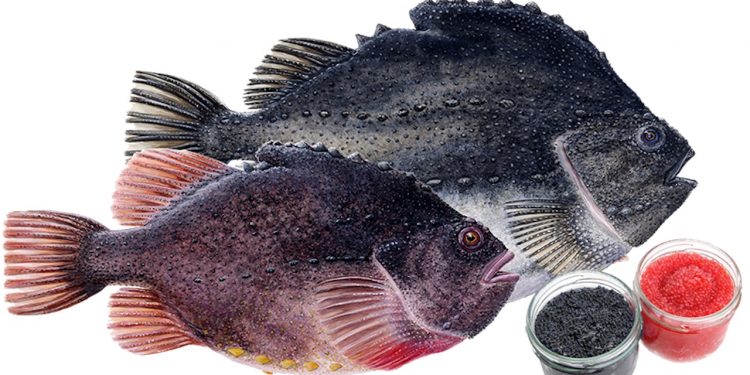The small-scale lumpfish fishery based in Iceland has regained its MSC certification, after making the necessary improvements in recent years to meet the science-based standard for sustainable fishing. The initial certificate was suspended during the first season of validity, when the annual audit revealed by-catch issues.
Since then, Icelandic Sustainable Fisheries (ISF) members, the National Association of Small Boat Owners (NASBO), the Marine and Fresh water Research Institute with the management authority and the Ministry of Industries and Innovation, have combined efforts to reduce interactions with other marine life, such as black guillemots and harbour seals.
A series of initiatives have been implemented to reduce by-catch, closure of fishing areas, hunting bans, and increased observer capacity. In addition, all logbook registration in the Icelandic catching sector is now mandatory digital and online via apps and tablets, which is expected to provide more accurate, effective and simplified logbook registration.
There is ongoing research on using a pinger to prevent unwanted by-catches.
‘This was a challenge, which makes it all the more rewarding that lumpfish fisheries have passed the assessment. It shows the commitment among Icelandic stakeholders to improve and maintain a sustainable interaction between fishing for food and all marine life. The certification is conditional, and we will continue to improve,’ said Kristinn Hjálmarsson, project manager at Iceland Sustainable Fisheries.
‘We want the conditions to be closed because that means that we have found a solution to a problem.’
Lumpfish roe is sold to European markets while the fish itself has buyers in China. Main markets operators expressed the importance of regaining the MSC certificate, which encouraged Icelandic Sustainable Fisheries to solve the problems behind the suspension in 2017 and withdrawal in 2018. At that time 90% of the lumpfish fisheries in the North Atlantic had MSC certification.
The fishery client group has been and is still instrumental in achieving permanent solutions to the issue. Implementing these new management measures have demonstrated the fishery now meets the MSC Fishery Standard requirements on minimising impact on the marine environment. However, MSC certification is conditional on the gill-net fishery showing it has reduced by-catches further within the next five years.
‘This comeback of the Icelandic lumpfish fishery confirms once again the effective fishery client setup, where ISF and its members successfully engage together with stakeholders and management authorities and deliver the needed improvements,’ said MSC Senior Programme Manager Gísli Gíslason.
‘This is almost the MSC theory in practice. The fishery client contributes both to the ocean health ensuring less by-catch and meeting the market demand for sustainable seafood. That is the MSC vision – oceans teeming with life, and seafood supplies safeguarded for this and future generations.’
Iceland’s lumpfish fishery regains its MSC certification. Image: fiskkaup.is









